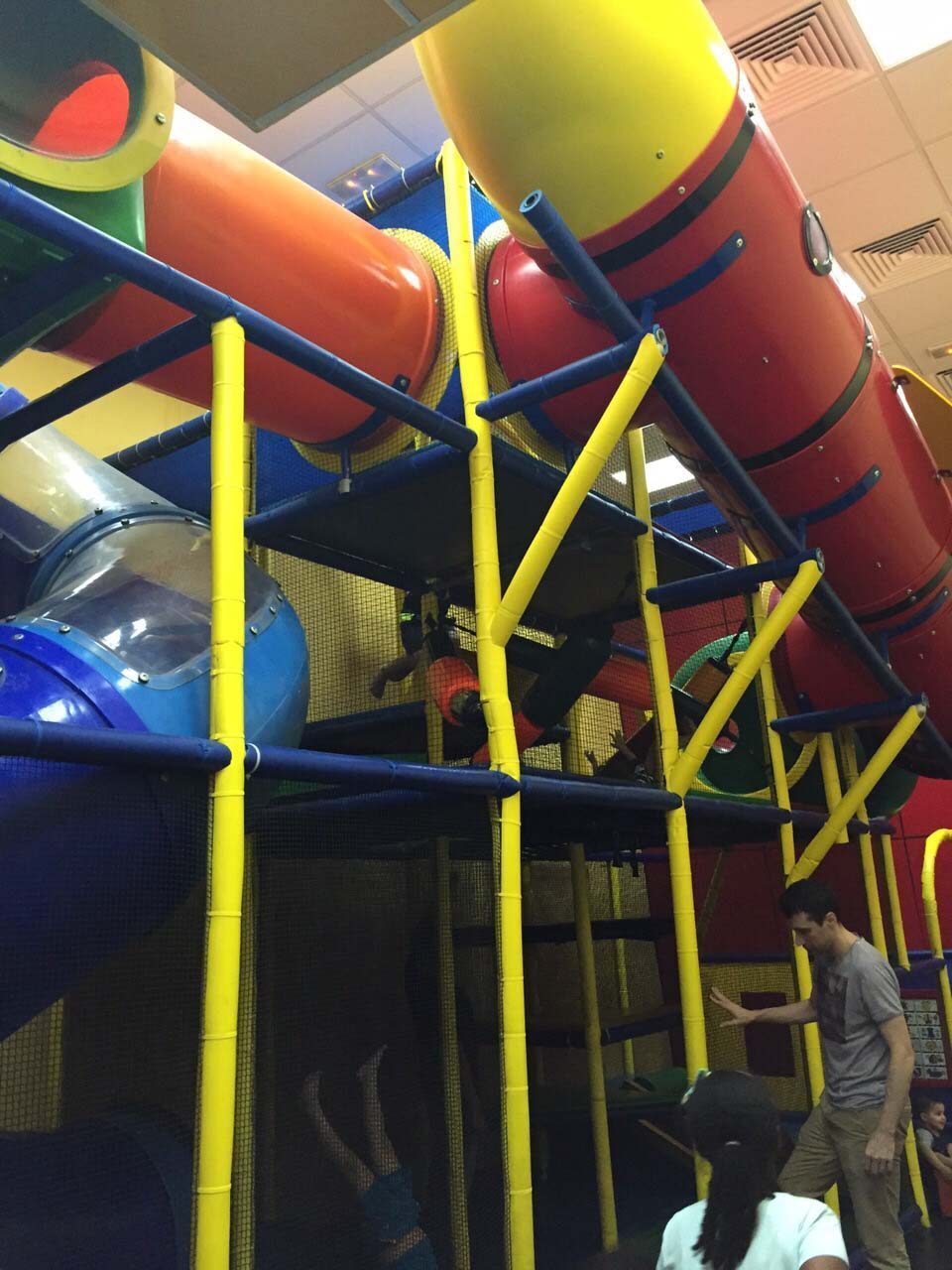
The mother of a young boy recently injured in the children’s play area of a popular family restaurant has voiced her concern over an apparent gap in safety procedures for the facilities in Qatar.

Seven-year-old Hamza sustained a cut to the top of his head, which required medical attention, while he was in a play zone inside a branch of Chili’s restaurant in Lagoona Mall last month.
His injury came from an uncovered metal hook that was sticking out above a slide inside the play area.
While Hamza was not seriously injured, his mother Rehana said that the incident had raised several questions about the maintenance and regulation of play areas in Qatar.
She has spoken out about the accident in a bid to encourage the implementation and enforcement of basic safety standards for indoor playgrounds to ensure more serious incidents do not occur in the future.
What happened
British expat Rehana, who has lived in Qatar with her family for more than seven years, had been visiting the restaurant on June 13 following a community event.
Hamza had been playing inside the play zone when he returned to the dining area, bleeding.

“I was shocked to see him. There was blood pouring down his face, onto his top and shorts,” she said.
A doctor was among the family’s friends, and initially treated the boy’s cut with their own medical supplies. Hamza was later taken to a clinic for follow-up treatment.
Rehana said the staff at Chili’s did not offer any first aid assistance and it took them more than two hours to clean up the child’s blood from the play area and the bathroom, where they had gone to wash his cut. During that time, she said the soft play remained open for other children to play in.
“At no point did anyone from Chili’s help us with our son, clean the blood from the play area or the blood we washed off our son in the washroom. This in itself is a huge hepatitis and health risk,” she said.
None of the staff on duty at the time had any first aid experience, she said. A Chili’s manager did speak to the family at the restaurant after the incident, however Rehana said she has yet to receive a formal apology from the eatery.
The restaurant has not responded to requests from Doha News for a comment.
Responsibility
None of Qatar’s most powerful ministries that are typically involved in regulating and inspecting business premises say they have a role in overseeing play areas once they’ve opened. This suggests that safety procedures are largely left up to individual operators.

Representatives at the Ministry of Labor and Social Affairs (MOLSA), which monitors and regulates nurseries, said it was not responsible, while an official at the Ministry of Municipality and Urban Planning said it similarly had no jurisdiction over the play areas.
The Ministry of Economy and Commerce said that restaurants had to register with them in order to obtain the necessary operating licences, but that it had no powers to check play areas inside restaurants.
While Civil Defense is responsible for signing off an establishment’s fire safety credentials, its remit does not extend to general safety.
Lagoona Mall management said the incident was “very unfortunate” and it had discussed the situation with the restaurant’s managers. However, it added that it was not responsible for conducting regular check-ups on its tenants.
In a statement to Doha News, the mall management said it has “strict measures in place with regards to the selection of our tenants, who not only fully comply with local guidelines and policies but also exhibit the highest standards of practice internationally.”
“Our tenants work with governing authorities in Qatar on an annual basis for the maintenance and upkeep of their properties and their equipment. The mall management however does not have any authority to interfere in their operation or procedures,” the statement added.
Rehana said she believes it’s up to individual restaurants to ensure they inspect their premises more closely.
“This incident highlighted that restaurant play areas are failing to exercise an appropriate level of care towards children and their parents,” she said.
She added that she had hoped that Qatar would have adopted a new culture of safety for children in the aftermath of the fatal Villaggio fire.
Other countries
It appears many countries also lack mandatory standards for indoor play areas, but in some cases, NGOs have taken it upon themselves to develop voluntary guidelines and related support services.
The UK-based Royal Society for the Prevention of Accidents (ROSPA) advises British indoor soft play centers that they should have inspections annually by independent safety experts to identify any problems and help prevent accidents.
The charity also recommends that staff working in indoor children’s soft-play areas check all the equipment at least daily for any hazards, using a checklist provided by the supplier. Inspections should be documented, and ROSPA advises operators to keep their paperwork for 21 years.
In addition, it states that all staff should be appropriately trained and that centers should have at least one member of staff on duty who has first aid training.
In the US, the American Society on Testing and Materials has national guidelines and standards for playground operators to follow. Some states, such as Minnesota, advise regular inspections of all play equipment to identify potential hazards.
“Improperly maintained play area equipment is a safety hazard that may result in injuries or even death to children,” the state’s Department of Health advises on its website.
Thoughts?







